Graduating with a degree in electrical engineering is an incredible achievement, but stepping into the job market can feel overwhelming. In Australia, the demand for electrical engineers is strong, yet landing your dream job requires more than just technical expertise. To help you navigate this transition effectively, here are tips and strategies for entering the Australian job market as a new electrical engineering graduate.
1. Understand the Job Market Landscape
Before diving into applications, take time to research the Australian job market. Electrical engineering opportunities are often concentrated in sectors like construction, energy, mining, telecommunications, health and advanced manufacturing. Pay attention to regional demand, as states like South Australia often have a higher need for engineers due to mining and renewable energy projects. If you are an international student who has graduated in Australia, South Australia offers visa benefits for employment, as it is a regional location.
Websites like Seek, Indeed, and LinkedIn are excellent resources for identifying job trends, understanding required skills, and gauging salary expectations. Searching more specific job sites like Hot Rubble and CareerMine. Keep an eye on government infrastructure projects or renewable energy initiatives, as they frequently generate job openings such as opportunities listed in the following document by regional South Australian locations- RDA_Outlook-2023-24_web.pdf.
👉 We are currently running a free workshop to help you navigate the job market! Click here to register.
2. Tailor Your Resume and Cover Letter
Your résumé is often the first impression you make. Employers take only a few seconds to decide if you are a person they would like to interview. Ensure your resume is tailored for each job you apply for. Include:
- A clear professional summary that highlights your key skills and goals.
- Relevant coursework, internships, or projects that align with the job.
- Technical skills, such as proficiency in AutoCAD, MATLAB, or other engineering software.
- Certifications, like WHS training or other industry-relevant qualifications.
Keep your résumé concise (2-3 pages) and use action verbs to describe your achievements. Your cover letter should complement your résumé by telling a story about why you’re a great fit for the role.
Put some life into your resume and cover letter so the potential employer can see that you stand out from the crowd. Your resume is the only chance you have of securing an interview so what you write on paper either entices or turns a potential employer away. Most resumes don’t tell the true story of who the person is, and it is, therefore, difficult to select candidates to interview who might be suitable for the vacant position.
3. Leverage Internship and Volunteer Experience
Many employers value hands-on experience, even if it’s from internships or volunteer roles. Highlight any experience that demonstrates your ability to apply theoretical knowledge in practical settings. If you lack direct experience, consider volunteering for engineering-related projects to build your portfolio.
4. Enhance Your Online Presence
In today’s digital age, having a strong online presence is crucial. Update your LinkedIn profile with:
- A professional photo.
- A compelling headline (e.g., “Graduate Electrical Engineer passionate about renewable energy”).
- Detailed descriptions of your education, skills, and projects.
Join LinkedIn groups related to electrical engineering to network and stay updated on industry trends. Consider creating an online portfolio or personal website showcasing your projects.
5. Network Strategically
Networking is one of the most effective ways to find job opportunities in Australia. Attend engineering expos, job fairs, industry conferences, or join webinars to connect with potential employers. Join professional associations like Engineers Australia to access exclusive job boards, events, and mentorship programs.
Don’t underestimate the power of informational interviews. Reach out to professionals in the industry and on LinkedIn to learn about their career journeys and gain valuable advice.
6. Master the Art of Interviewing
Congratulations! If you have secured an interview, you are doing well. Interviews can be nerve-wracking, but preparation is key. Research the company thoroughly, understand its values, and be ready to discuss how your skills align with its goals. Practice answering common behavioural and technical questions, such as:
- “Describe a challenging project and how you handled it.”
- “Explain a time you worked in a team to solve a problem.”
- “What would you do if you discovered a flaw in your design?”
Prepare questions to ask the interviewer, demonstrating genuine interest in the role and company.
Each interview will be different so practicing each time will be key to securing your success.
7. Consider Graduate Programs
Many companies in Australia offer graduate programs designed to nurture young talent. These programs provide structured training, mentorship, and diverse exposure to the industry. Companies like Rio Tinto, AGL, and Telstra often recruit electrical and other engineers through their graduate initiatives. Signup for alerts from large companies so that you are informed of opportunities as they arise. Apply early, as spots are competitive.
8. Upskill to Stay Competitive
The engineering field evolves rapidly, and staying current with industry trends can set you apart. Consider pursuing additional certifications or courses in areas like:
- Renewable energy systems eg solar, wind and hydrogen
- Automation and robotics
- Data analysis for engineers
- Artificial Intelligence
Platforms like Coursera, edX, and TAFE offer affordable learning options.
9. Understand Australian Workplace Culture
Familiarise yourself with Australian workplace norms, including:
- The importance of teamwork and collaboration.
- A focus on work-life balance.
- Open and respectful communication.
Understanding these nuances can help you integrate smoothly into your first role.
10. Stay Resilient and Persistent
Job hunting can be challenging, but persistence pays off. Rejection is a normal part of the process. Use feedback to improve and keep refining your approach. Celebrate small wins, like landing an interview, to stay motivated.
11. Consider Relocation
If opportunities are limited in your current location, be open to relocating. Many regional areas, such as Eyre Peninsula, South Australia, and Far North, have a high demand for engineers and may offer better prospects for graduates willing to move.
12. Seek Guidance and Mentorship
A mentor can provide invaluable support as you navigate your early career. Reach out to university professors, professional connections, or alumni from your program. We (Skillsmart) also facilitate mentorship programs—join our upcoming webinar to learn more!
By applying these strategies, you’ll position yourself as a strong candidate in Australia’s electrical engineering job market. Remember, the journey to a fulfilling career is a marathon, not a sprint. Stay proactive, keep learning, and trust in your ability to succeed.



